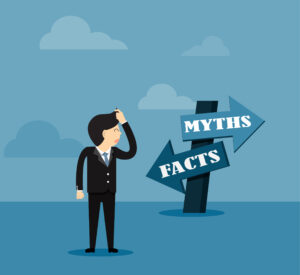Things to Consider for Your 2015 Capital Gains Tax
There are all kinds of investors in the world. Some are looking to make a quick buck by buying and then quickly selling stocks as soon as they increase in value. Other investors buy stocks with an eye toward the future, which means they are in it for the long haul.
In any case, anyone who invests wants to be successful at it. It’s a great feeling to buy stock in a company and see that stock increase in value. However, at some point if you plan on selling that stock and cashing in or your gains, you will have to give a portion of those gains to the taxman. What percentage you will owe will depend on the size of your gain and how long you have owned the stock.
The government wants investors to hold onto their stocks longer. To encourage this they have a lower tax percentage on stocks held longer than a year. Whether you’re a quick turnaround trader or a long-term investor here’s what you should be aware of in 2015 for your capital gains taxes.
First, generally all you need to know to determine your capital gains is the difference between what you paid for the stock and how much you sold it for. When you know that amount then you can calculate the tax. Your tax rate will depend on which bracket you’re in. There are three that apply:
- If your ordinary income puts you in the 10-15 percent tax bracket, then your long-term capital gains rate is 0 percent.
- If your ordinary income falls in one of the 25, 28, 33, or 35 percent tax brackets then your long-term capital gains rate is 15 percent.
- If your ordinary income is in the 39.6% tax bracket, then your long-term capital gains rate is 20%.
There are a few other caveats to remember. For high-income earners, there is an additional 3.8 percent surtax on net investment income. Also, you only pay taxes on the net of your capital gains, which can make a big difference if you sell more than one stock in a year. If you want to learn more about capital gains taxes then please contact GROCO for more answers. Click here or call us at 1-877-CPA-2006.
Myths About Trusts
Myths About Trusts Trusts are a dependable way to arrange for the management of family funds. Yet even financially sophisticated people settle for less satisfactory alternatives. Lack of knowledge isn’t the problem. It’s the assorted myths about trusts handed down over the years. Myth #1. Only the very rich use trusts. Because what the superrich…
Calculating Capital Gains Tax on the Sale of a Collectible
Calculating Capital Gains Tax on the Sale of a Collectible Uncle Sam takes a tax bite out of almost every asset sold and collectibles are no exception. Indeed, collectibles are currently subject to one of the highest rates of federal taxation on an investment property. Long term Capital gain from the sale of a collectible…
Don’t Get Scammed on Your 2015 Tax Return
Don’t Get Scammed on Your 2015 Tax Return By Alan Olsen, CPA, MBA (tax) Managing Partner Greenstein Rogoff Olsen & Co. LLP It’s tax season and for a lot of people that can be a very scary time of year. Some people will attempt to go it alone and use an online tax program, while…
Sales Tax Deduction Option, State and Local
[vc_row][vc_column][vc_column_text] Sales Tax Deduction Option, State and Local The Tax Relief and Health Care Act of 2006 extended the election to deduct state and local general sales taxes for 2006. The act was enacted after Schedule A (Form 1040), Itemized Deductions, and its instructions were printed. Because we were not able to include the instructions…



